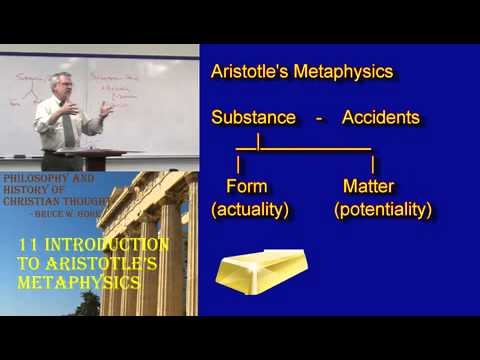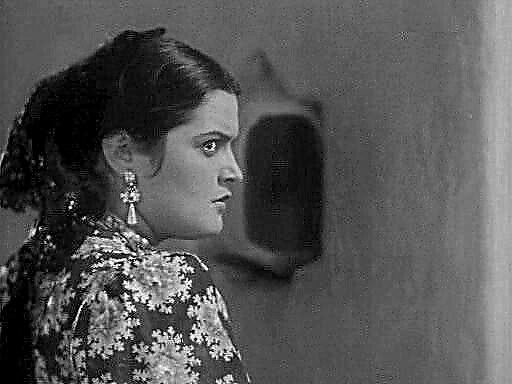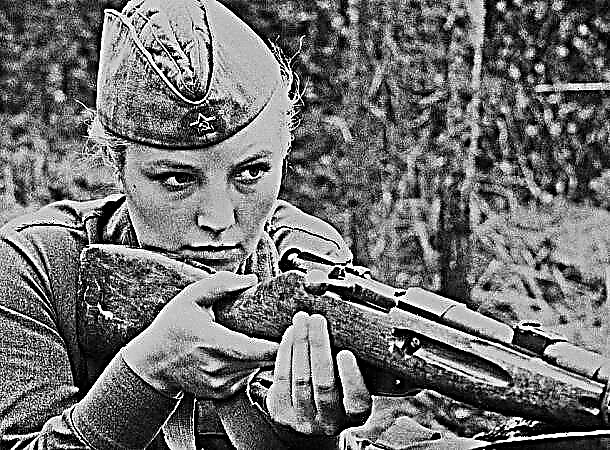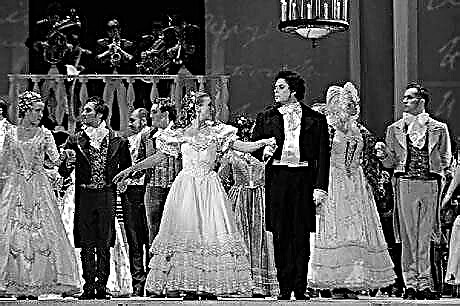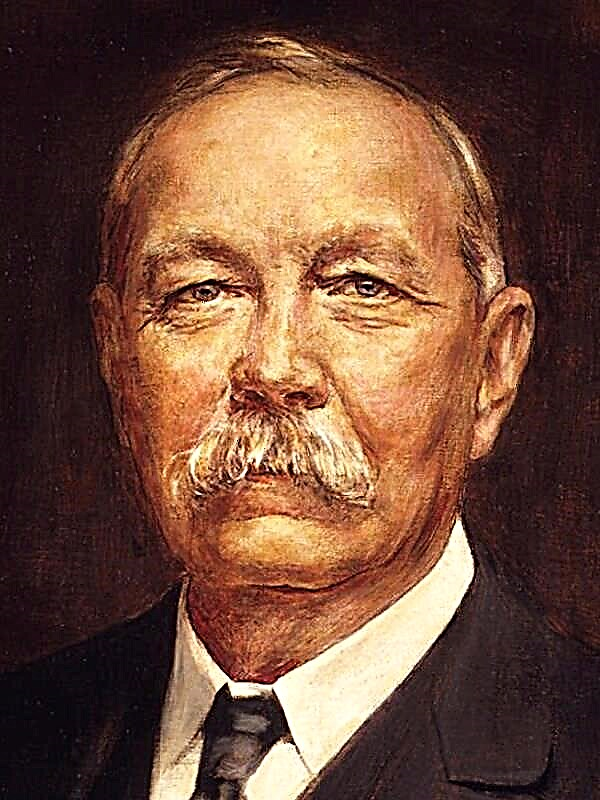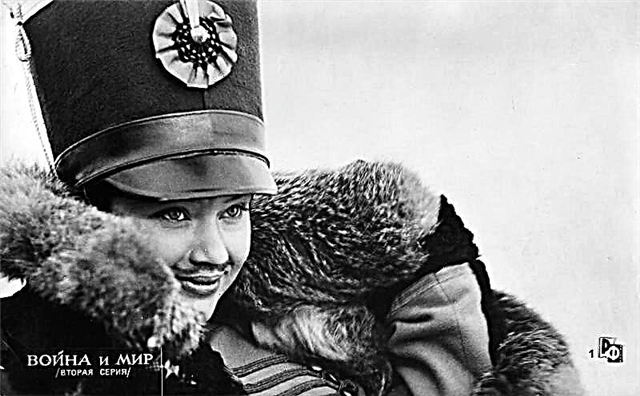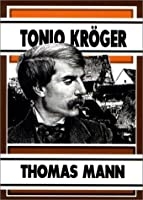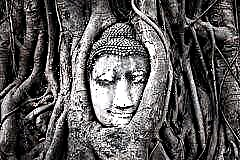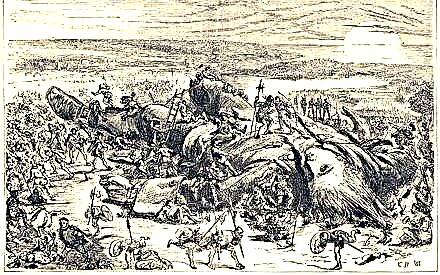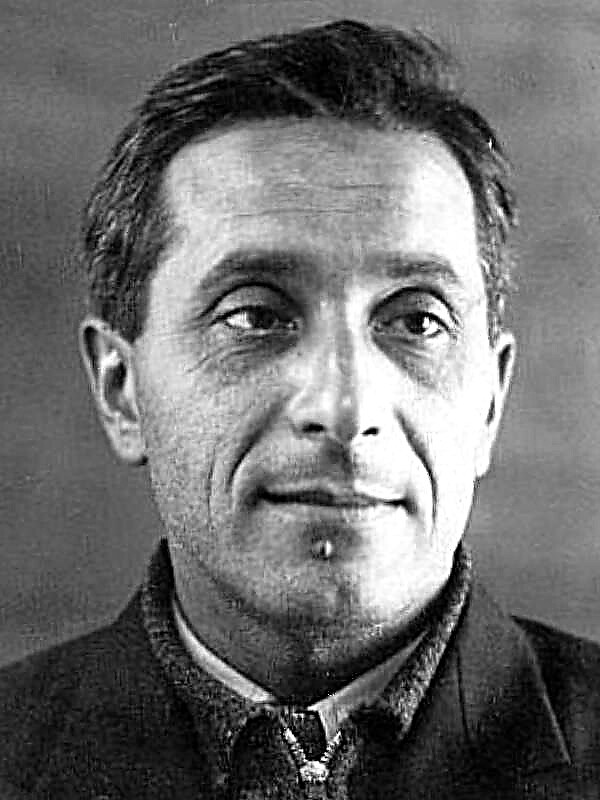: A Jewish milkman works hard dreaming of wealth and prosperity. He often quotes scripture and interprets sayings, thereby emphasizing that they do not correspond to actual life.
The work is based on the letters of the milkman Tevye to the writer Sholom Aleichem.
Az unworthy
The poor milkman Tevye delivers his goods to the rich, including those who rent summer cottages in Boyberik. Among them is the writer Sholom Aleichem, who wants to write a book about the milkman. Tevye thanks the writer for the honor, not once mentioning that he is not worth it. Happiness that Tevye met such an enlightened man! “... I am a truly faithful friend to you, God grant me at least a hundredth of what I wish you!” - says the milkman and at the end of the letter adds where to send him some money after the publication of the book.
Happiness has come over!
Before, Tevye was not a milkman, he drove logs from the forest to the station and died with his wife and children from hunger three times a day, not counting dinner. One day, returning home late at night after an unsuccessful day, Tevye meets two women lost in the forest. The milkman takes them straight to Boybeirik.
In gratitude, Tevye generously endowed with food, money and a cow. The cow is milked, the woman says, but there is no milk. Tevye joyfully wakes his wife Golda in the middle of the night. She swears, sprinkles curses, as a woman should:
Baba ... and will remain a woman! ... It’s good that now it’s out of fashion to have many wives.
They decide to buy another cow. So Tevye becomes a milkman. Now his affairs are much better.
Chimera
A relative of Golda Menachem-Mendl comes to Tevye, their fence "cousin wattle". He has been engaged in profitable business for a year and a half. True, the wife of Menachem-Mendla curses him in letters what the light stands on:
That's why she and his wife, to drive into the coffin.
Menachem-Mendl suggests Tevye to profitably invest the money earned by hard work. After much deliberation, Tevye decides to take a chance. There is no news from the companion for a long time. The milkman goes to a relative, dreaming of wealth, but he only repents. Others call his profitable business "last year's snow."
Current children
To the eldest daughter of Tevye Zeitl, a rich widower, a butcher, is wooing. True, the daughter of a groom of the age of Zeitl, and the butcher’s hand is not very generous. But "as they say:" He is the closest to man, "who is good to people is unkind to himself." Moreover, the groom agrees to marry the girl without a dowry. Golda also enjoys a profitable party, but Zeitl does not want wealth: she is ready to eat every three days, only to marry a poor tailor - they love each other. Tevye, sparing the beloved child, gives consent to marriage.
Zeitl is happy with her husband, although they live poorly. Tevye helps her daughter with money and her products.
Godl
Tevye is surprised by the neighboring children of craftsmen and tailors: they are eager to leave for the city to study, although they eat twigs with sores there and roll around in the attics!
One student often comes to Tevye, Perchik: “he is so unpretentious, feeble, black, kikimora, but he’s brainy and his tongue is fire!” Perchik also teaches literacy to children of the milkman.
Swat offers Tevye a wealthy groom for his second daughter Godle. But Godle took it and fell in love with it, in this Perchik! Young people celebrate a quiet wedding, after which Perchik immediately leaves. Soon, Godle set off for her husband: he was in exile for revolutionary activity. Tevye pours out experiences of Sholom Aleichem. Trying to be distracted, the milkman changes the subject: “Let's talk about more fun things. What is heard about cholera in Odessa? ”
Hawa
Tevye notes that his third daughter Hawa often talks with the Orthodox clerk. Hawa believes that the clerk is "this is the second Gorky."The father does not know who the first Gorky is, and warns his daughter to stay away from the clerk, because the scripture says that everyone should look for an equal. Hava does not agree: people themselves divided themselves into Jews and non-Jews, rich and poor.
The daughter is disappearing. Tevye meets a priest who says that Hawa now lives in his house, she is the wife of a clerk. On the advice of Golda, Tevye goes to the priest. He wants to see his daughter, but the priest does not allow. At home, the milkman and his wife celebrate mourning in Hawa.
Returning home one evening, Tevye meets her daughter in the forest. Hava begs to listen to her, but his father, overpowering himself, passes by: "But he wants to turn around, but Tevye is not a woman, Tevye knows how to deal with the devil-tempter."
He is tormented by thoughts of what a Jew and a non-Jew are, and why some should hate others.
Syringe
Tevye shares with Sholom Aleichem a new grief:
“Trust in God” - you say, just rely on him, and he will try to bend you in three deaths ...
In the summer, Tevye has a new customer - a wealthy widow. A woman is worried about her son: the guy is a dope with a fool, lisapedy and fishing are on his mind, and he is only squandering his father’s state. Tevye gets to know the young man more closely, gets sympathy for him and invites him. The widow's son becomes a frequent visitor and soon asks Tevye for the hands of his fourth daughter - Sryntsi. Tevye worries what the widow will say: the poor Syringe is no match for the rich. But the boyfriend does not care about this, he is not going to choose relatives for his mother. Tevye calls the young man a dummy, but the syringe in love does not want to listen to anything. Such daughters Tevye: beautiful and stately, like pine trees, and even if they give their heart, it is already irrevocable.
The milkman dreams of the well-being of his daughter, but then the widow's brother is announced and offers money so that the Syringe will return the word to his nephew. Tevye is offended, he turns to God: “What did you see, Lord, in old Tevye? Why don't you leave him alone for a minute? Was light coming on me like a wedge? ”
Why are people so angry? Can't they do good? Why do they need to spoil the lives of others and themselves, when they could live well and happily?
The widow and son suddenly leave without paying Tevye for the goods, and the Syringe is drowned from grief in the river.
Tevye goes to Palestine
Golda dies, never accepting the death of the Syringes.
The fifth, the most beautiful daughter of Tevye Beilka, chooses a rich groom, a contractor, although she does not like him. Tevye is trying to dissuade her daughter to get married on a reckoning: Godl’s poor, and she’s happy with her husband even in exile. But Beilka says that now is another time, you need to think about yourself.
Having returned from a honeymoon, the son-in-law invites the father-in-law to himself. He offers Tevye to sell everything and go to Palestine. The contractor himself got out of poverty and is now ashamed that his father-in-law is a simple milkman. He tells everyone that his wife’s father was a millionaire. Tevye comments: “If the Lord judged me to have ever millions, then let it be considered that I have already served this punishment.”
Beilka, suffering, assures her father that her husband is a good person, because he helped Godl and her husband.
Returning home, Tevye sells his property. He is especially sorry to part with the old horse. Tevye will be homesick, customers, but he consoles himself by visiting the grave of the foremother Rachel.
Come out!
Zeitl's husband dies of a dryness, and she and her children come to live with her father. The son-in-contractor goes bankrupt and leaves with Bailka to America. Poking around the first time, they now knit in a car. So it was not possible to visit Tevye in Palestine.
The hunt for the Jews begins. The peasants, who always lived in peace with Tevye, want to arrange a pogrom for him, otherwise they will fly by themselves. The officer receives an order to evict all the Jews from the village: “It somehow felt better in my soul: after all, the grief of many is half the consolation.”
Tevye and Zeitl decide to move to the city. For the sake of his daughter, he holds back tears, because Tevye is not a woman. But the hardest thing in the heart:
What do not say, all the same Fatherland! Grew up here, toil all his life and suddenly, please come out! Say what you want, but it really hurts!
Before leaving, Zeitl begs to take Hava with them, but Tevye does not want to hear about her, she is not his daughter for a long time. Hawa enters, and Tevye cannot push the child away when she stands in front of him and says: “Father!”
Now all his attention belongs to his grandchildren, who are a thousand times more valuable to him than children. As the scripture says: "A child of thy children."


